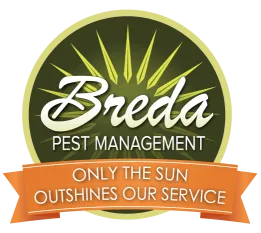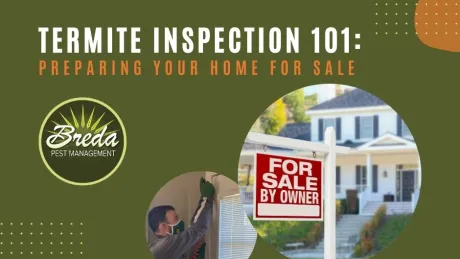To most homeowners, termites are public enemy number one. Unfortunately, if you try to treat your home for termites without prior knowledge about termites and how they work, you could be setting yourself up for failure.
In the worst-case scenario, you could improperly or incompletely treat the problem. Some termites are eliminated, but the nest (and the queen) survives, leaving you right back where you started when the termites you kill are just replaced by new ones later on.
If you want to be able to make a professional exterminator job easier and get the most out of your own do-it-yourself efforts, there are some important facts you need to know. By knowing when termites are most active, where they prefer to make a nest, and some effective prevention methods, you'll be in a good position to save yourself time, money, and a lot of headaches.
Before you buy a home, consider the following termite facts:
1. Termites are Seasonal
Termite infestations are generally discovered in the spring, often between March and May. This is because it is around this time of year when homeowners can find discarded wings that have been discarded by adult termites.
In the termite lifecycle, nymphs moult into one of three roles: workers, soldiers, and reproductives. Unlike the other two forms, reproductive termites sprout wings and take off in a mating flight, or swarm. Each termite swarmer finds a mate, and the two go on to become the king and queen of their new colony.
In nature, winged termites emerge from their colonies during the spring because of warmer temperatures and increased rainfall. The presence of discarded wings in or around your home is a very likely sign of an infestation, so be on the lookout during these months.
2. Termites Have a Varied Diet
Termites feed on cellulose, which is most commonly found in wood. However, while they are most associated with wood, termites will also feed on paper, plastic, and drywall, and have even been known to feed on house foundations, furniture, shelves, and books.
When inspecting your home for signs of infestation, keep in mind that the wooden parts of your home are not the only areas at risk.
3. Regular Inspections Are a Must
Having a home inspected for termites before buying it can save a lot of money and headaches in the long run. After all, the last thing you want after purchasing a new home is to have to spend even more money to repair existing damage.
Beyond being practically invisible, termites are silent creatures that can destroy the inside of a home without its occupants ever knowing. In the worst-case scenario, the previous occupant may not have even been aware that damage was taking place, allowing extensive damage to be done and costing you that much more to repair.
Termite treatment costs usually range from about $500 - $1500. While this is a considerable cost, it will inevitably be a smaller hit on your wallet than a full repair.
4. Prevention is Key
As the saying goes, "An ounce of prevention is worth a pound of cure," and there are a number of steps you as a homeowner can take to decrease your risk of infestation.
Remove termite food sources by keeping firewood, lumber, and paper away from the foundations and/or crawl spaces. Get rid of stumps and debris near your house, and make sure wood on your home isn't in direct contact with the soil. Keep the gutters and downspouts clean, divert water from your home's foundation, and repair any leaky faucets, pipes, or A/C units.
For more information, check out our blog, "The Most Effective Treatment Methods for Getting Rid of Termites."
5. Don't Do It Alone
If you find a termite infestation in your house, a DIY treatment is not recommended. Treating an infestation requires special skills and knowledge about potential points of entry that termites may use. Special equipment such as masonry drills, pumps, large-capacity tanks, and soil treatment rods are needed, as well as multiple gallons of termiticide.
Unfortunately, this means that most homeowners are simply incapable of fully and completely eliminating their termite problem by themselves. Luckily, a pest control professional will have the skills, tools, and know-how to get the job done right and keep termites out for good.
Interested in learning more about termites, the damage they can cause to your home, and what you can do to stop it? Download our free informative Ebook, The Termite Lifecycle, and find out how you can protect your home today.
And if you happen to need our termite extermination services, don't hesitate to contact us today!




